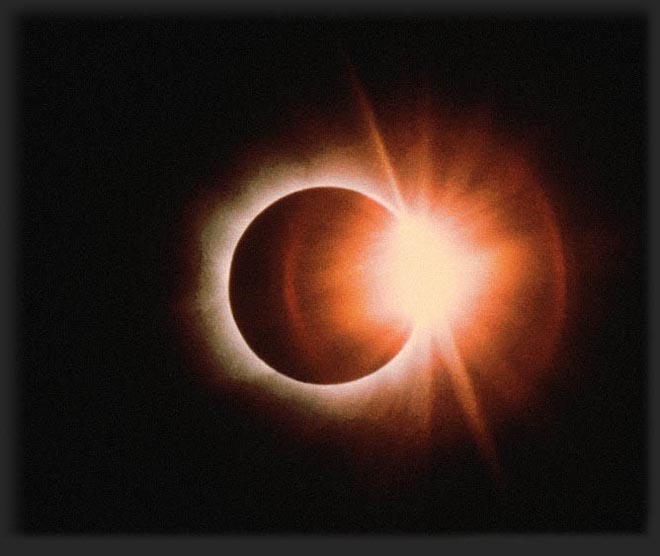The longest annular solar eclipse of the millennium took some in Africa by surprise Friday morning as it marched across the continent, DPA reported.
In an annular eclipse, the sun and moon are directly in line with the viewing point. However, since the moon is smaller, it leaves the blazing outer rim of the sun visible.
The eclipse hit Chad and the Central African Republic, then reached the Democratic Republic of the Congo, Uganda, Kenya, and Somalia.
In Uganda, many woke up on Friday to unusually dull weather, unaware they were witnessing an eclipse.
Starting around 7:15 am (0415 GMT), the moon began to bite away at the sun, progressively lowering temperatures. The peak of the eclipse occurred around 8:25 am.
"What is happening this morning? Is it going to rain? I do not understand this whole thing," a young motorcyclist, Tony Kasibante, said as he peered up at the sky in Kampala.
Ugandans called radio stations from different parts of the country, the majority asking panelists at the radio talk shows to explain what was happening.
One woman in the streets of Kampala said: "The moon is fighting the sun. I saw this many years ago and it is happening now."
Journalist Dennis Ojwee, speaking from the town of Gulu, 360 kilometers north Kampala, said: "People are getting out of their houses to watch this change in the morning light. Children are particularly curious and many are screaming."
By 9:15 am, only a tiny part of the sun was still eclipsed by the moon.
In the Kenyan capital Nairobi, those hoping to view the eclipse were initially disappointed to see a blanket of grey cloud covering the sky. Even so the event was partially visible through the scudding clouds.
In the Nairobi city centre, dozens of commuters on their way to work stopped to look at the eclipse through solar filters and record the event on their mobile phones.
After passing over Somalia, the eclipse crossed over the Indian Ocean, where it at one point lasted for over eleven minutes.
According to NASA, the duration of this eclipse will not be surpassed until the year 3043.
The eclipse was then due to move over India.






